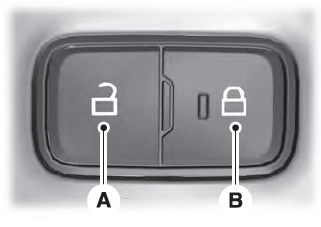Lincoln Aviator: Brakes / Auto Hold
WARNING: The system does not replace the parking brake. When you leave your vehicle, always apply the parking brake.
WARNING: You must remain in your vehicle when the system turns on. At all times, you are responsible for controlling your vehicle, supervising the system and intervening, if required. Failure to take care may result in the loss of control of your vehicle, serious personal injury or death.
WARNING: The system turns off if there is a malfunction or if you excessively rev the engine.
The system is designed to apply the brakes to hold your vehicle at a standstill after you stop your vehicle and release the brake pedal. This could be beneficial in certain situations, for example when waiting on a hill or in traffic.
Switching Auto Hold On and Off
 Press the button in the
instrument
panel to access the Auto Hold
feature on the touchscreen.
Press the button in the
instrument
panel to access the Auto Hold
feature on the touchscreen.
Note: You can only switch the system on after you close the driver door and start the engine.
Note: The system remembers the last setting when you start your vehicle.
Make sure you switch the system off before towing with your vehicle or before using an automatic car wash.
Using Auto Hold
- Use the brakes to bring your vehicle to a complete stop. The auto hold active indicator illuminates in the information display.
- Release the brake pedal. The system
holds your vehicle at a standstill. The
auto hold active indicator remains
illuminated in the information display.
Note: The system only activates if you apply enough brake pressure. If your vehicle is on a steep slope, you need to press the brake pedal harder before the system activates.
Note: Under certain conditions, the system could apply the electric parking brake. The brake system warning lamp illuminates. The electric parking brake releases when you press the accelerator pedal.
Note: If auto-start-stop turns off the engine, auto hold remains active.
Note: The system deactivates if you shift into reverse (R) and press the brake pedal.
- Pull away in the normal manner. The system releases the brakes and the auto hold active indicator turns off.
Auto Hold Indicator
 The auto hold indicator
illuminates
in the information display when the
system is on and is either active or
unavailable.
The auto hold indicator
illuminates
in the information display when the
system is on and is either active or
unavailable.
 Illuminates when the system is
active. Your vehicle remains
stationary after you release the
brake pedal.
Illuminates when the system is
active. Your vehicle remains
stationary after you release the
brake pedal.
Illuminates when the system is on but unavailable to hold your vehicle at a standstill.
The system could be unavailable when any of the following occur:
- During an active park assist maneuver.
- Your vehicle is in stay in neutral mode.
- The driver door is open.
- You shift into reverse (R) before the system is active.
 Hill Start Assist
Hill Start Assist
WARNING: The system does not
replace the parking brake. When you leave
your vehicle, always apply the parking
brake.
WARNING: You must remain in your
vehicle when the system turns on...
 Reverse Braking Assist
Reverse Braking Assist
What Is Reverse Braking Assist
The system is designed to reduce impact
damage or avoid a collision completely by
using the sensors on the rear of your vehicle...
Other information:
Lincoln Aviator 2020-2026 Service Manual: Removal and Installation - Driver Door Module (DDM)
Removal NOTE: Removal steps in this procedure may contain installation details. NOTE: If installing a new module, it is necessary to upload the module configuration information to the diagnostic scan tool prior to removing the module. This information must be downloaded into the new module after installation...
Lincoln Aviator 2020-2026 Service Manual: Removal and Installation - Front Door Side Impact Sensor
Removal WARNING: The following procedure prescribes critical repair steps required for correct restraint system operation during a crash. Follow all notes and steps carefully. Failure to follow step instructions may result in incorrect operation of the restraint system and increases the risk of serious personal injury or death in a crash...
Categories
- Manuals Home
- Lincoln Aviator Owners Manual
- Lincoln Aviator Service Manual
- Interior Lamps
- Tire Change Procedure
- Child Safety Locks
- New on site
- Most important about car
Locking and Unlocking the Doors from Inside

Locking the Doors
Press the lock switch on the door interior trim panel. The doors can no longer be released using the exterior door handle switches and the luggage compartment locks.
